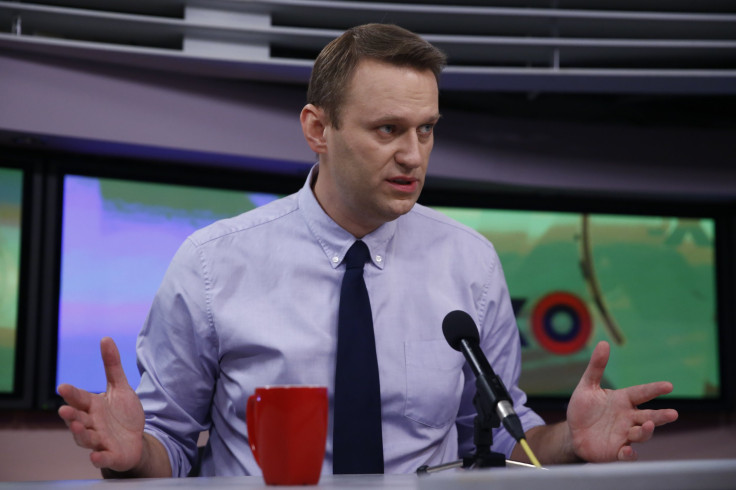Who Is Alexei Navalny? Russian Opposition Leader Could Be Suspended From Running Against Vladimir Putin In 2018 Election

Alexei Navalny, the head of a political movement opposing Russian President Vladimir Putin, was found guilty of embezzlement by a Russian court Wednesday. The verdict could potentially force him to relinquish his plans to run for office in 13 months, according to local media.
The new verdict, Navalny reportedly said, was a verbatim copy of a previous ruling deemed a rights violation by the European Court of Human Rights. The entire case marked an attempt to keep him from running for office, he added. He was facing a suspension from running for office of up to 10 years. Navalny planned to appeal the ruling, local media reported.
Навальный прокомментировал приговор: приговор мы не признаем и обжалуем, я имею полное право участвовать в выборах https://t.co/c87Ts7agtG
— Ilya Varlamov (@varlamov) February 8, 2017
Navalny rose to prominence through his blog, which heavily criticized Putin’s regime. He’s also won acclaim for openly criticizing state oil industry magnates in 2009, creating “the only Russia-based” anti-corruption foundation in 2011 and serving as a leading figure in protests against Putin’s most recent election victory, which many believed had been rigged in his favor.
The opposition leader announced in mid-December that he planned to run for president in Russia’s 2018 election, challenging Putin, who has held his post, the duration of which was extended to six years from four by his predecessor, since 2012, when many attributed his election landslide to widespread fraud. Before Putin took the presidential seat in 2012, he served as prime minister in 1999, won the presidency in 2000 and 2004 and became prime minister once more, after, as president, he appointed a loyal successor who would keep him in the premier position.
This is not the first time Navalny has faced efforts by the Russian judicial system to keep him behind bars. After accusing Putin of corruption in 2012, the state jailed the activist himself for corruption. The European Union said this charge posed “serious questions.” He was later unexpectedly released on bail.
Following a rally in Moscow in 2014, Navalny was among 100 demonstrators arrested near the Kremlin. Placed on house arrest the following year, he cut off his monitoring tag in defiance of the government. In May, he and several other protesters fended off paramilitary officers during a protest in southern Russia, an attack he believed the government coordinated.
After Russia’s Supreme Court rejected a lower court ruling that sentenced him to five years in November, a retrial effort prompted cries of blatantly political motivations.
The European Court of Human Rights said Thursday that previous detentions of the activist by the Russian government in 2012 and 2014 amounted to a gross violation of his rights and “had the effect of preventing and discouraging him and others from participating in rallies and actively engaging in opposition politics.”
© Copyright IBTimes 2024. All rights reserved.






















